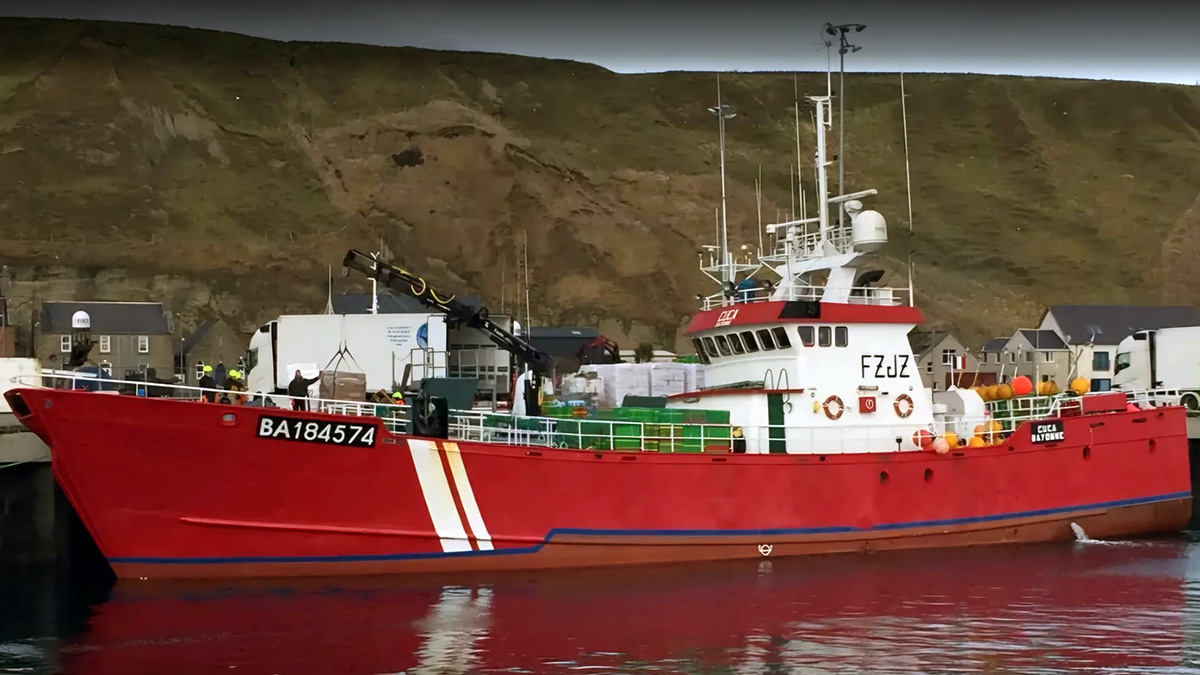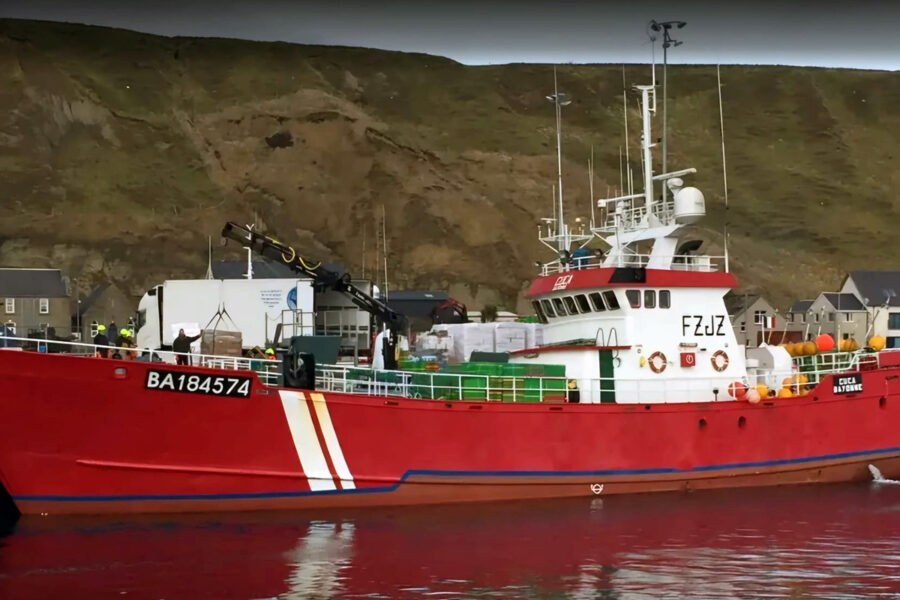A Shetland MSP has raised fishermen’s long-running concerns about the lack of checks on catches by foreign vessels that are landed straight onto lorries – particularly, in northern ports, by Spanish-owned longliners and netters – and then trucked south for sale on the Continent.
Beatrice Wishart asked fisheries minister Mairi Gougeon a series of questions relating to inspections of landings by foreign vessels into Scotland, including the number of boxes that are physically checked each month – action that can be taken to ensure that fish caught in Scottish waters is ‘appropriately landed’. She also asked for confirmation of ‘the percentage of catch that is routinely transported without appropriate landings documentation’.
Mairi Gougeon said that Marine Directorate officers do not record how many boxes of fish they physically check. “When undertaking a monitor of a vessel, officers are expected to assure themselves that the quantities landed are consistent with quantities declared.
“Where species are sorted and landed together, officers are required to undertake sample checks by physically inspecting containers to check that all fish is the same species and correctly recorded. Where fish is not sorted and landed by species, officers are required to inspect each box.”
She said the Scottish government ensures all non-UK vessels landing into Scotland are authorised to do so by enforcing detailed regulations which include vessel tracking and daily electronic catch reporting, and the requirement to complete Port State Control and export documentation.
“Officers from the Marine Directorate verify documentation by undertaking risk-based remote and physical inspections at ports. The Scottish government also inspects non-UK vessels at sea using marine protection vessels and surveillance aircraft,” said Mairi Gougeon.
She added that the Scottish government is developing a programme of detailed analysis of vessels fishing Scottish waters but landing in another state. This involves working closely with the EU and other third countries to improve data sharing, including sales and inspection data.

The French-registered vessel Cuca landing fish into Scrabster at the end of August, with the fish being consigned overland for first sale in the EU. (Photo: Jim Cowie)
In 2023, officers carried out 177 inspections from 266 non- UK vessel landings into Scotland (67%). Routine inspections include document checks, box counts, species identification and assurance sampling checks of catch landed. “The level of sample checks will depend on risk, which considers the likelihood and impact of an infringement,” said Mairi Gougeon.
The minister said there are no estimates of the percentage of fish routinely transported out of Scotland without appropriate landings documentation, because no vessel would be given authorisation to land without appropriate Port State Control authority. A landing condition is that all documentation is correct. “All non-UK vessels landing into Scotland are subject to documentation checks prior to landing,” said the minister.
On the numbers of non-UK vessels fishing in Scottish waters, Mairi Gougeon said the licensing of non-UK vessels is led by Defra. As of 12 August, 2024 there were 1,549 EU vessels, 213 Norwegian vessels and 26 Faroese vessels with UK access licences.
SFA: ‘Label boxes at point of landing, not first sale’
Daniel Lawson, executive officer of the Shetland Fishermen’s Association, said the lack of checks on landings by non-UK vessels onto lorries for onward transport and sale was a longstanding cause of concern in Shetland and elsewhere in Scotland.
He said the crux of the issue came down to the regulations around the labelling of fish boxes and the requirement, carried over from the EU, that boxes must be labelled at the point of first sale.
“When our boats land through the markets at Lerwick or Scalloway, boxes are labelled universally with weights, species and where and when fish was caught,” he told Fishing News.
“When Marine Directorate inspectors turn up onboard the vessel or at a landing to verify that landings match up with e-logs that vessels have submitted, everything is labelled and laid out, and they can be confident that what’s being landed is what they say is being landed.
“The difficulty – and this is particularly a habit of the EU fleet of gill-netters and longliners that fish around Shetland and up and down the west coast of Scotland – is the tendency to land into the back of lorries, and the fish then goes straight to the Continent for sale, rather than being landed through the fishmarket structure in Scotland.
“Regulations that were carried over from the EU state that boxes must be labelled at the point of first sale. But the fish that’s going into the backs of lorries is not being sold there – it’s being sold as and when
it reaches whatever market it reaches on the Continent.
“The Marine Directorate will say it inspects whatever percentage of these lorry landings, but logistically if you are a fisheries inspector and you turn up to a stack of unlabelled boxes in the back of a lorry, how can you possibly verify whether the contents of the boxes match up to the vessel’s e-log?”
He said fishermen in Shetland had been saying for a long time that the situation means there is no level playing field, and that it leaves open the possibility of abuse and unsustainable fishing.
“Government should be doing more to explain how it’s properly checking those stacks of unlabelled boxes, or how they ever could do that properly,” said Daniel Lawson.
“We need to have a think about these regulations – would it not make more sense to stipulate that the boxes should be labelled at the point of first landing? That would make it the same for everyone, and make it all above board.”
This story was taken from the latest issue of Fishing News. For more up-to-date and in-depth reports on the UK and Irish commercial fishing sector, subscribe to Fishing News here or buy the latest single issue for just £3.30 here.
Sign up to Fishing News’ FREE e-newsletter here.
Main image credit: Jim Cowie








